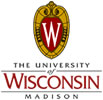New Webmail Application
Try out our new Webmail application. We think you are really going to like it. It has an interface that acts more like an email program running on your computer than a web page. For example, you can:
- Drag messages to move them
- Right-click on a message or folder to access a list of things you can do with it
- Select a message and press the Delete key to remove it (or drag it to the trash)
- Select multiple messages with Control-click on a PC or Command-click on a Mac
- Select a range of messages by first clicking the beginning of the range and then Shift-click on the end of the range
To use Webmail, click on Webmail on SSCC's home page and then click new beta webmail. We also have a knowledge base article which explains a few things that you may find less intuitive.
We plan to remove Squirrelmail at the end of the summer providing all goes well with the new Webmail program between now and then. Use the "Leave Feedback" button in the upper right corner of the application to let us know what you think.
SSCC Services Down 6-8 a.m. Wednesday April 7
Except for email, SSCC services will be down from 6-8am next Wednesday April 7th as we conduct upgrades on our file servers. These upgrades will do two things:
- By adding hardware redundancy we will be eliminating a single point of failure ensuring more reliability for our members.
- By making several network related enhancements our members will see increased disk performance both on Windows and Linux based systems.
In summary, the downtime will result in faster and more reliable disk access for our members.
SSCC's April Training
All three April training opportunities in 3218 Social Sciences are sponsored by DoIT and for students only. There are two Matlab classes and one Nvivo class. All three classes require registration. For details and to register please visit our training web page.
Tip: If people send large amounts of mail to your SSCC email address it's best not to forward it
The SSCC's mail server (like almost all mail servers) does not forward mail it considers spam. If it did, the SSCC would soon be blacklisted as a spam source and many servers would reject all our mail. Our spam filter is very good at not marking legitimate mail as spam and for forwarded mail it is even more conservative, so the probability of a legitimate message not being forwarded is extremely low. However it is not zero.
If people send large amounts of mail to your SSCC email address and you have forwarded your SSCC email to some other address, the probability of one or more legitimate messages being lost because they were misclassified as spam and not forwarded becomes significant. (Messages sent in non-European character sets are somewhat more likely to be misclassified, so if you receive such mail the probability is even higher.) Forwards are best used so that you get the occasional email sent to an address other than the one you normally use (like SSCC announcements), or when you're transitioning between email addresses. If people will be sending a large amount of mail to your SSCC address it's best to read your SSCC email directly rather than forwarding it.
If you believe a legitimate message was not forwarded to you, contact the Help Desk for assistance. We may be able to recover it.

